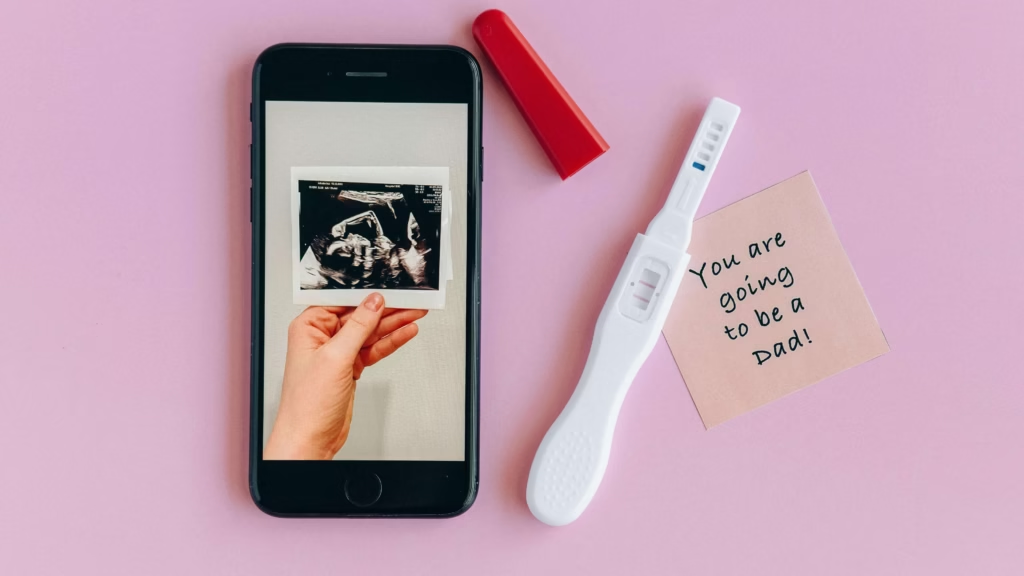Did you know 1 in 8 couples in the U.S. face infertility? Egg donation is a hopeful solution for many. If you’re thinking about becoming an egg donor, you’re on a journey that could change lives. The process includes several steps, from applying to egg retrieval. It’s key to know the requirements and the commitment needed.
Thinking about egg donation means understanding the process and its responsibilities. You’ll need to meet certain requirements, go through medical and psychological checks. The process might seem complex, but with the right help, you can make a well-informed choice.
Key Takeaways
- Understanding the egg donation procedure is crucial for first-time donors
- Egg donor requirements include meeting specific physical and emotional criteria
- The egg donation procedure involves medical screenings, psychological evaluations, and legal documentation
- Egg donation can have a significant impact on both donors and recipients
- It’s essential to consider the emotional, physical, and financial implications of egg donation
- The egg donation procedure typically involves several steps, from initial application to egg retrieval
- As an egg donor, you’ll play a vital role in helping individuals or couples achieve their dream of having a child
Understanding Egg Donation: A Life-Changing Decision
Egg donation is a big decision that can deeply affect both the donor and the recipient. It’s key to know the process and its effects. A fertility clinic can offer help and support every step of the way, following guidelines established by the American Society for Reproductive Medicine.
The egg donation timeline changes based on the donor’s age, health, and the recipient’s needs. The process starts with screening, medical checks, and a psychological assessment.
What is Egg Donation?
Egg donation means a woman gives her eggs to another woman or couple. This can change their lives in big ways. According to RESOLVE: The National Infertility Association, third-party reproduction options like egg donation have helped thousands of families overcome fertility challenges.
The Impact of Egg Donation
Egg donation affects people emotionally and physically. Donors might feel excited or anxious. Recipients often feel thankful and hopeful.
Who Needs Donor Eggs?
People or couples might need donor eggs for many reasons. These include age, genetic issues, or failed IVF tries. A fertility clinic can guide them and support them through the egg donation timeline. The CDC’s annual ART success rates report shows that procedures using donor eggs have consistently high success rates for many patients.
| Reasons for Donor Eggs | Description |
|---|---|
| Age-related Infertility | Women over 35 may experience decreased fertility |
| Genetic Disorders | Couples may want to avoid passing on genetic disorders |
| Previous Unsuccessful IVF | Couples may consider donor eggs after unsuccessful IVF attempts |
Basic Requirements for Egg Donors
To become an egg donor, you must meet certain egg donation qualifications set by fertility clinics. These rules are to keep the To become an egg donor, you must meet certain egg donation qualifications set by fertility clinics. These rules are to keep the egg donation procedure safe and successful. The egg donor screening involves a detailed medical and psychological check-up, in accordance with FDA regulations designed to protect both donors and recipients.
During the egg donor screening, age, health, and lifestyle are key factors. Egg donors usually need to be between 21 and 35 years old. Some clinics might have different age limits. You should also be physically and mentally healthy, with no past medical issues.
Here are some basic requirements you should know:
- Age: Between 21 and 35 years old
- Health: Good physical and mental health, with no history of certain medical conditions
- Lifestyle: A healthy lifestyle, with no history of substance abuse or other high-risk behaviors
Remember, the egg donation qualifications can change based on the fertility clinic and the intended parents. By meeting these basic needs and going through a detailed egg donor screening, you help make the egg donation procedure safe and successful.
The Complete egg donation procedure Explained
Thinking about becoming an egg donor? It’s key to know the whole egg donation procedure. This path has many steps, from applying to the final egg retrieval. The egg donor screening is a big part, making sure donors are ready physically and mentally. When selecting a fertility clinic for egg donation, prospective donors and recipients can consult SART’s extensive patient resources to find accredited facilities with transparent success rates.
First, you fill out an application with personal and health info. Then, a detailed medical screening checks your health and if you’re a good match. You’ll also go through a psychological evaluation to see if you’re emotionally ready.
Next, you’ll sign legal documents like consent forms. This is important to know everyone’s rights and duties. You’ll have a team of experts helping you through the egg donation procedure.
Some important parts of the egg donor screening are:
- Medical history check
- Genetic tests
- Psychological check
- Legal papers
Knowing the egg donation procedure and egg donor screening helps you decide. Being an egg donor can give hope and happiness to those facing infertility.n procedure and egg donor screening helps you decide. Being an egg donor can give hope and happiness to those facing infertility.
Medical Evaluation and Donor Screening Steps
Thinking about becoming an egg donor? It’s key to know the medical steps involved. This detailed process is to keep you and the future child safe. The egg donor screening starts with a physical check-up. This includes looking at your health history and tests for any health problems.
The donor screening also involves genetic tests. These tests look for genetic issues that could affect the child. A blood test or cheek swab is used for this. Plus, your family’s health history is checked for any risks.
- Physical examination: A detailed check for health issues.
- Genetic testing: Tests for genetic problems.
- Family medical history assessment: Looks at your family’s health history for risks.
Knowing about the medical and donor screening steps helps you decide if you want to be an egg donor. The egg donor screening is crucial for the health and safety of both the donor and the future child.
| Screening Step | Purpose |
|---|---|
| Physical Examination | To check for underlying health issues |
| Genetic Testing | To identify potential genetic disorders |
| Family Medical History Assessment | To identify potential health risks in your family |
Preparing for the Egg Retrieval Procedure
As you get ready for the egg retrieval procedure, knowing the egg donation timeline is key. It’s important to prepare your body for this step. The egg retrieval is a crucial part of the egg donation procedure, and Mayo Clinic’s comprehensive overview explains that being well-prepared can make it smoother and more successful.
You might need to change your lifestyle a bit. This could mean avoiding certain medicines or activities. Your fertility clinic will give you a list of things to do and not do. This might include what to eat, how much to exercise, and other safety tips.
Here are some important things to remember as you prepare:
- Eat healthy and drink plenty of water to stay healthy
- Stay away from hard work and heavy lifting to avoid problems
- Take any medicines your clinic tells you to
- Go to all your appointments and check-ups to stay on track
By understanding the egg donation timeline and following your clinic’s advice, you can have a good egg retrieval procedure. Stay informed, ask questions, and focus on your health and well-being during this time.s time.
The Medication Protocol and Hormone Treatment
As you move forward with theegg donation procedure, you’ll start a medication protocol and hormone treatment. This is a key part of the egg donation procedure. A fertility clinic will closely watch you during this time. The aim is to get your ovaries to make many eggs, boosting your chances of donating.
You’ll take injectable medicines yourself, after learning how from the fertility clinic. These medicines help your follicles grow, stop you from ovulating too early, and get you ready for the egg retrieval.
Types of Medications Used
- Follicle-stimulating hormone (FSH) to stimulate follicle growth
- Luteinizing hormone (LH) to trigger ovulation
- Gonadotropin-releasing hormone (GnRH) to prevent premature ovulation
Monitoring Your Response
It’s important to check in regularly to see how your body is doing with the medicines. The fertility clinic will set up frequent visits and ultrasounds. They’ll watch how your follicles are growing and adjust your medicine as needed.
Knowing about the medication and hormone treatment in the egg donation procedure helps you prepare. With help from a trusted fertility clinic, you can go through this part with confidence. You’ll be helping make the egg donation procedure successful.
What to Expect During Egg Retrieval
As you get ready for the egg retrieval procedure, it’s key to know what to expect. This important step of the egg donation procedure happens in a clinic or hospital. You’ll get anesthesia to keep you comfortable during the procedure.
Before the procedure, you’ll get instructions to follow. These might include fasting or adjusting your medication. It’s important to stick to these instructions to make the procedure go smoothly. The actual retrieval usually takes 20-30 minutes. You might feel some discomfort or cramping during or after it.
After the procedure, you’ll need to rest for a few hours to recover. You might feel bloated, crampy, or experience mood swings. But these feelings are usually mild and short-lived. Following your doctor’s post-retrieval recovery instructions is crucial for a smooth recovery. Theegg donation procedure can be rewarding and life-changing. Knowing what to expect during the egg retrieval procedure can make you feel more ready and confident.
By following the pre-retrieval instructions, understanding the procedure, and taking care of yourself after, you can have a successful and comfortable egg donation experience. Remember, theegg donation procedure is a big decision. It’s vital to take care of your physical and emotional health throughout it.
Understanding Egg Donation Compensation
Egg Donation Compensation changes based on many things. Fertility clinics pay donors for their time, effort, and any costs they face.
Several factors affect egg donation pay:
- Location: Pay varies by region and state.
- Donor Characteristics: Age, health, and background can change pay.
- Clinic Policies: Each clinic has its own pay rules.
Legally, egg donation pay is for the service, not the eggs. This rule helps follow ethical and legal guidelines.
Donors should think about taxes on egg donation pay. This income is usually taxed. Talking to a tax expert can help donors understand its financial impact.
Here’s a table showing typical pay for egg donation in different areas:
| Region | Compensation Range |
|---|---|
| Northeast USA | $5,000 – $8,000 |
| Midwest USA | $4,000 – $7,000 |
| West Coast USA | $6,000 – $10,000 |
Potential Risks and Side Effects
Thinking about becoming an egg donor? It’s key to know the egg donation risks. The process is mostly safe, but there are things to think about. You might feel some discomfort from the hormone shots or the egg retrieval.
Looking ahead, some studies say egg donation could affect your future fertility or health. But, talking to doctors can help you understand these risks better. They can offer advice and support every step of the way.
- Ovarian hyperstimulation syndrome (OHSS)
- Infection or bleeding after the retrieval procedure
- Emotional attachment or curiosity about the outcome of the donation
Think about the risks against the joy of helping others have children. Being well-informed helps you make the best choice for you.
Your health is the most important thing. If you’re thinking about egg donation, talk to doctors about your worries. They can give you the info and support you need to understand the risks and the process.
Conclusion: Is Egg Donation Right for You?
The egg donation procedure is a big and life-changing choice. It can be very rewarding to help build a family. But, it’s important to think carefully about your reasons, values, and situation before you decide.
Think about if you’re ready for the medical checks, legal papers, and any physical or emotional effects. Make sure you have people supporting you and understand the payment and any risks.
If you’re thinking about this journey, reach out to trusted fertility clinics. They can give you the help you need to see if egg donation is for you. Your choice can change lives, so think about it carefully.
FAQs About Egg Donation Procedure
What is the egg donation procedure?
The egg donation procedure has several steps. First, you apply and then go through medical and psychological checks. Next, you sign legal documents and start hormone treatment. Finally, you have the egg retrieval procedure. It’s all about keeping everyone safe and healthy.
What are the basic requirements to become an egg donor?
To be an egg donor, you must be 21 to 32 years old. You should also have a clean medical history. Fertility clinics look at your lifestyle, education, and personality too.
What happens during the medical evaluation and screening process?
Donors get a physical check-up, genetic tests, and a family health review. This detailed check ensures the donor and any future children are safe and healthy.
How do I prepare for the egg retrieval procedure?
Before the egg retrieval, you’ll follow a special medication plan. You might need to change your daily routine. The clinic will guide you through this preparation.
What can I expect during the egg retrieval procedure?
The egg retrieval is a quick, outpatient procedure. It usually lasts less than an hour. You’ll be comfortable thanks to anesthesia. Afterward, you’ll rest a bit before getting back to your day.
How is egg donation compensation determined?
Compensation for egg donation depends on location, clinic rules, and donor characteristics. It’s meant to reward the donor’s time and effort, not just the eggs.
What are the potential risks and side effects of egg donation?
Egg donation might cause short-term discomfort from injections or the procedure. There are also long-term risks, like effects on future fertility. Donors might feel emotionally attached or curious about the donation’s outcome. Knowing these risks is crucial before donating.







